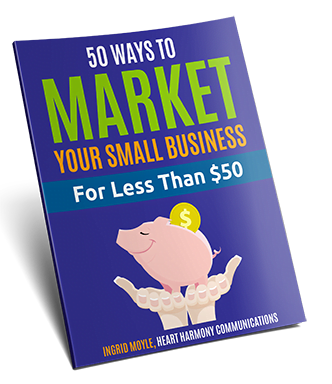When you are building a website, whether or not to add a blog is often up for debate. People are interested in the idea, they know Google generally likes fresh blog posts, but the logistics can be a bit on the vague side. Before you sign-off on adding a blog, here are the pros and cons of blogging for your business.
When you are building a website, whether or not to add a blog is often up for debate. People are interested in the idea, they know Google generally likes fresh blog posts, but the logistics can be a bit on the vague side.
Before you sign-off on adding a blog, here are the pros and cons of blogging for your business.
 Pros of Blogging
Pros of Blogging
Demonstrates Your Credibility
One of the best ways to boost your credibility and expertise in the eyes of clients and potential clients is to share your knowledge with them. By writing blogs about your product or service, you help provide answers and solutions to problems or issues people may be having.
But – I don’t want to give away too much …
Many businesses don’t want to “give away the farm” by writing blog posts. However, what my clients have found is that by giving away some of their best information for free, their business gained credibility and a whole pile of new clients.
Loads of people took advantage of their free offers, which then meant they could then sell other products or services to them down the track. The businesses ended up with a bigger pool of potential clients, that they then convert to paid clients later on.
They also found when they share the key points of their core information with potential clients, the potential clients think, “If this is what they give for free, how awesome will the advice be when I actually pay for working with them?“.
Give away the “what to do” and sell the “how to do it”. Give away the strategy. Sell the implementation. Give away the system. Sell the process. That way you can give amazing content and advice and remain in your integrity and value your product or service.
Brings people back to your website
Blogging regularly brings people back to your website, giving you a chance to build a connection and keeps you top of mind. While they may not go on to use your services, often they will refer you to their friends who end up as your clients.
Extends your reach
When you leverage your blog posts through clever use of social media, you can suddenly reach people you had no access to previously. All of these people are potential clients.
You may get the thumbs up from Google
A well written, thorough blog post can have excerpts shown by Google as a featured snippet. This is akin to Google saying’ “This is the best answer we can find on the net to your question.” Having a section of your post end up as a featured snippet brings in potentially thousands of more views and clients to your website. (We have a few featured snippets and can attest the massive jump in readers that they bring).
 Cons of Blogging
Cons of Blogging
It takes time
Writing and maintaining a blog takes time. While once short and sweet was the rule when it came to posts, what works now is the longer the blog post, the better you tend to perform on Google.
Gone are the days where the ideal blog length was between 350 – 500 words. Instead, the average length of a post that ranks on Google is now 2500 words. This amount of content takes time to research and put together!
One thing you need to remember is that length of your blog posts needs to support your overall marketing strategy.
Coschedule put together a handy strategy summary to use as a guide.
- If you want more comments on your blog post, the length should be about 275 words.
- If you want more social shares on your blog post, the length should be between 600 – 1500 words.
- If you want your blog post to rank in Google, the blog post should be about 2500 words.
It needs to be formatted for readers
Long posts are great, but it can be overwhelming. You need to add plenty of graphics and images to break up the wall of text and to ensure that the reader stays engaged. Graphics and laying out text for readability takes time and money to organise.
You need a basic understanding of SEO
If you want to rank your blog posts on Google, you need to understand the basics of Search Engine Optimisation (SEO).
In particular, you need to understand a little bit about keywords and where to use them for best effect. Your keywords should appear in the title of your post, the post summary and naturally sprinkled throughout your text.
Website plugins like Yoast SEO can help you get the optimal balance of keywords, not too many and not too few.
It needs to be maintained
There’s nothing worse for your credibility than going to a website and seeing that the blog only contains one or two posts, or that your blog hasn’t been touched since John Howard was Prime Minister.
If you are going to blog, you need to keep it maintained, and not wander off towards the next bright, shiny object.
It takes time to find your blogging voice
Great bloggers don’t start out great. Blogging is a skill. No-one goes from crawling to winning races in a few short days. It takes time and practice.
All bloggers start with writing crap content that only their mother would read. Over time and practice, they start to find their blogging voice, and put together higher quality posts that start to get traction. Allow yourself to make mistakes!
It is a slow burn marketing strategy
While we would love to tell you that you post one magic blog post and the world changes, the reality is less glamorous. Some posts sparkle, others fizzle out.
You may only get a tiny handful of views on your post, but when you add a tiny handful to the next tiny handful and the next, they all add up.
Your goal is to build a sustainable business with consistently increasing traffic to your website. You do that piece by piece, blog post by blog post. Consistency and growth take time.
So you want to start a blog?
Once you decide that the pros of blogging outweigh the cons, the next thing to work out is what you are going to write about.
Ideally, you want to create a lovely long list of blog topic ideas, neatly scheduled into your content calendar for the next quarter or year.
The reality is often less organised, with many business bloggers casting around for blog topic inspiration. Here are some evergreen blog topic ideas to get you started.
 Top 10 Blog Topic Ideas
Top 10 Blog Topic Ideas
Tips
Do you have tips or ideas related to your product or service? These could be to include tips around the selection, maintenance, repair, troubleshooting of the product, or could be broadened out to tips that are more generally related to your industry (e.g. 10 Tips to Help You Decorate Your Child’s Bedroom).
How to posts
These are generally more in-depth than a tips post, and give people step by step instructions on how to do something (g., How to Repair Plasterboard Cracks). Blog posts that give clear and thorough information that solves client problems are SEO gold. People love them, and Google loves that people love them.
How to posts often form the foundation of your hero posts for your website – the ones that bring the bulk of visitor traffic to your site. One “how to” post we wrote for a tradie client delivered over 20,197 views in a 12-month period. When in doubt, go for a “how to” blog post for your website.
FAQs
Look at the FAQs people ask about your service or product and consider if the answers could be turned into a post (e.g. 7 Reasons You Need to Check Your Circuit Breakers Regularly). The side benefit is that it may reduce time spent on the phone or email support as you have already answered the question the person has via your blog.
Your opinion of news issues
Sometimes there are issues in the media that you can logically make a comment on or give your opinion on (e.g. How to know if you need to throw away your fridge after a flood or if you can save it). Be cautious of commenting on political or cultural topics unless your business is in that industry as you may exclude potential clients.
Product stories
If you are launching a new product or improving an existing product, this could be converted to a blog post (e.g. The Latest Innovation in Kitchen Time Savers). This also can extend to case studies about people who have successfully used your product.
Trends
If you stay across new research or can tap into trends in your industry, you can share the findings in an easy to understand way with your clients (e.g. Why More Small Businesses Are Turning to Facebook).
Reflections
People are interested in learning interesting facts about the history of your company or reflections of your experience. Remember though, this is not online therapy, and you need to consider the depth of your disclosure (e.g. What I Wished I Had Known Before I Started My Business).
Interviews
You can interview top clients or employees to explore what they like about your company or discuss information about their businesses/roles that may be relevant to your readers (e.g. How XYZ Helps 123 Stay Profitable).
Myth Busting
If there are myths about your product or service type, then a myth-busting post may be needed (e.g. Do You Own Your Business Words and Images?)
Seasonal
Some posts can be targeted to specific holidays or seasonal events such as New Financial Year, New Year’s Resolutions, Christmas Ideas. (g. 10 Ways to Spice Up Your Christmas Party).
 16 Ways to Repurpose Your Blog Posts
16 Ways to Repurpose Your Blog Posts
Once you have written your blog post, don’t just dust your hands and walk away. You have gone to all this effort to create amazing content, look for new ways to leverage your content by repurposing and sharing it.
1. Republish your post on LinkedIn as a LinkedIn Article (break it up if necessary).
2. Pull out useful quotes and tips and turn them into Instagram and social media graphics.
3. Turn your blog post into a video and upload it to Facebook, YouTube, Twitter.
4. Share it in your ezine or newsletter.
5. Turn data and statistics into an infographic.
6. Record yourself reading it out loud and use it as a podcast.
7. Do a Facebook live broadcast answering questions about the post.
8. Use it as a starting point for guest posts that you write for other people’s blogs.
9. Convert blog post items into checklists and templates and offer them as content upgrades to help build your mailing list.
10. Collate your posts into an ebook at the end of the year. (It makes writing a book so much easier).
11. Expand on relevant points through new blog posts (e.g. turn a list into a series of individual blog posts).
12. Turn your content into a PowerPoint presentation and upload it to Slideshare.
13. Gather a group of like-minded people together and have each person write a post around a theme (e.g. My Best Piece of Business Advice). Each person includes their signature block or by-line on their post. These posts are then collated into an e-book that everyone can give away on their websites. That way everyone gets something great to give away that doesn’t take a lot of individual time to produce.
14. Create a resources page on your website for your best blog posts on topic areas.
15. Add your most popular posts as part of a welcome series of emails sent through your autoresponder program.
16. Turn your best content into an online course and sell it through platforms like Udemy.
 You Don’t Have to DIY for Your Blog
You Don’t Have to DIY for Your Blog
If the thought of writing a blog is a bit overwhelming, remember you can outsource your blog writing to a good web copywriter.
Web copywriters can research and write blog posts about pretty much any topic. In our business, we have written blog posts on topics as diverse as the mating habits of scrub turkeys through to electrical design verification for power stations.
A high-quality web copywriter will:
- help you think through your blogging strategy,
- assist you to identify potential topic areas,
- find your keywords,
- research your content,
- write your blog post,
- edit it for correct grammar,
- format it for readability,
- design your graphics,
- upload it for you to your website, and
- assign you the copyright for the material.
Quality web copywriters charge accordingly, so you need to allocate the budget to match.
Last words
Having a thriving blog filled with fresh, valuable content is a fantastic indicator to potential clients and Google that you have a trustworthy and effective business.
It can help generate high-quality leads to your business while positioning your business for long-term, sustainable success.
Like any business marketing strategy, go into it with your eyes open and plan to make it a success. Blogging is not a quick fix or something to do on a whim. It is a marketing strategy you need to work at and allocate time and budget towards to deliver the best results.





